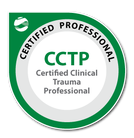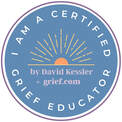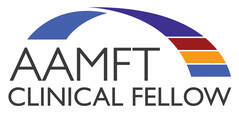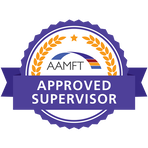|
“Trust is the glue of life. It's the most essential ingredient in effective communication. It's the foundational principle that holds all relationships.” --Stephen Covey
If you ask any couple, they will tell you that trust is foundational in the relationship. Violations of trust are the most common reason that couples seek help. It is devastating when a partner breaks the trust that has been established. It is not easy, but with work and effort trust can be rebuilt. I often use the analogy that as a couple, you are building a city together. The longer the couple has been trusting in the relationship the larger the city grows. If there is a small trust issue, it may just damage a building or two, but the rest of the city remains strong. When there is a major violation of trust it is like an earthquake hits and the entire city crumbles. All the forms and structures of the relationship that were once known are gone. The city is now just dust and debris. It becomes dangerous to navigate and feels foreign. If the couple tries to ignore the problem and move on without proper clean up, it is like building new structures on top of the rubble. It is not a firm foundation and it won’t be long before the new structures fall. It is only when couples make genuine repair attempts and work to gain trust again that the debris starts to be cleaned out. Reaching out to make a genuine apology while listening with the intent of understanding, is like the removal of a wheelbarrow of debris. It can’t all get cleaned up in one ‘I’m sorry.’ Clearing is arduous work. It takes time and a willingness to be vulnerable, but the work starts to clear enough solid ground to start rebuilding. Couples can start creating their new city while sections of debris remain. The beauty is that they get to choose how they would like to rebuild their city. In this new city, they can decide what was working from the old and incorporate it, while they can leave out what wasn’t working. When they continue to communicate with clarity, they begin to rebuild and remove debris. Eventually, a new relationship is created that may, or may not, look anything like their old relationship. I emphasize that this is a brand-new relationship and it must be treated with the respect and reverence of any new relationship. Violations of trust do not need to end a relationship. They can become an opportunity to create a new relationship which better meets the needs of everyone involved. It takes a willingness to do the demanding work of clean-up and rebuilding, but it can revitalize your city.
1 Comment
"I think that the most difficult thing is allowing yourself to be loved, so receiving the love and feeling like you deserve it is a pretty big struggle. I suppose that's what I've learnt recently, to allow myself to be loved." --Nicole Kidman
Many of us are natural givers. We enjoy helping and supporting others. We take pride in giving and look for ways to be in service to others. But, are we as good at receiving? Only when it is a two-way street are we able to fully benefit. The same pride that we take in giving, often blocks our receiving. We would rather struggle and do it ourselves then allow others to help us. I once heard the story of a minister, who was in the hospital after an accident which left him with two broken arms. One of his congregants came and offered to feed him his meal, but in pride he declined the congregant’s support. A nurse, who was in the room asked the minister about the interaction after the congregant left. The minister stated that it is his job to take care of his congregants and he could not allow one of them to take care of him. The nurse asked if he gave sermons about the joy of giving. The minister replied, ‘Of Course! As the Bible says, It is more blessed to give then to receive!’ But then the nurse pointed out that the minister robbed the congregant of the joy of giving by refusing to receive. I often imagine the flow of giving to be like a water wheel. Many of us are good at giving the water, but in order for the buckets to fill, we need to receive the water from the stream. If there is a dam blocking the flow of water, we are unable to receive and will eventually have nothing to give. In our pride, many of us build a dam that blocks our ability to receive. We then give until the point of burnout. When we limit what we receive, we limit what we have to give. The wheel can't move unless it receives. Unfortunately, society seems to have the perception that it is a weakness to receive. We are told to pull ourselves up by our bootstraps and do it ourselves. The truth is, we are an interdependent species. We do depend on others for our survival. When we allow ourselves to receive gratefully, we are practicing self-care. We can say ‘thank you’ with a grateful heart when someone gives us a compliment, offers to pay for our lunch, or helps us with a task. We can choose to accept the support of others and keep the flow moving, instead of adding to our dam. What blocks in receiving are you willing to remove in order to restore the flow? “All life demands struggle. Those who have everything given to them become lazy, selfish, and insensitive to the real values of life. The very striving and hard work that we so constantly try to avoid is the major building block in the person we are today.” --Pope Paul VI
We live in an unpredictable world. Just when things seem to be going well, a storm hits and things change. We all have to face the storms. They are an inevitable part of being human. But, why is that some people seem to weather the storms of life unscathed while others struggle? I often use the analogy that it is like we are on a boat anchored by the shore. When the storm comes, if we don’t have a strong anchor, we will be pulled out to sea. We need a strong anchor to keep our boat secured during the storm. So, what makes for a strong anchor? It is clarity on what we value and living in alignment with our values. Every time our words, behaviors and actions are in alignment with our core values, we add weight to our anchor. The more we live life from our values, the stronger our anchor becomes. When we forget and get busy with things we don’t value, our anchor weakens. Often, it is only when the storm hits that we notice we are without a strong anchor. We find ourselves drifting aimlessly in confusion and without direction. Every day is a new opportunity to demonstrate our values. We can choose to interact with others in ways that are in alignment with who we say we want to be, or not. When we notice that our anchor is not as strong as we would like it to be, it is an opportunity to decide how to strengthen it. Every moment is a choice point for how we want to show up with the people around us and for ourselves. Every interaction can either strengthen or weaken our anchor. The choice is ours. What can you do today that will strengthen your anchor? “The significant problems we have cannot be solved at the same level of thinking with which we created them.” --Albert Einstein
Life has a way of putting obstacles right in our way. It happens frequently. We finally decide that we are ready to take action and go for what we want, when an unexpected expense or event pops up that stops us. Many people take that as a sign that it wasn’t meant to be, so they turn around and shrink back into their old life. What if that block in our way was just a test to see if we really wanted what was on the other side? When I work with clients, one of the first things I ask clients is what they want. Solution-Focused Therapy refers to this as the ‘Miracle Question.’ It is a question that asks clients to imagine that they went to bed tonight and a miracle happened, which removed all of their problems. When they woke up tomorrow, what would be different? What would indicate that all of their problems were resolved? Asking this question is a great way to help people clarify what they want in life. What is important to them? If they didn’t have the limits and confines of their current life, what would they want for their life? How would their relationships be different, how would their jobs be different, how would the way they see the world be different? When clients are clear on what they want, the question then focuses on what is blocking them from getting what they want. This is trickier than it sounds. Most people are not aware of what the blocks are because we become oblivious to them. They become such an everyday part of our life, that we are blind to what is blocking us and unaware of our power to remove it. The beauty of the ‘Miracle Question’ is that it puts people in the mindset that the miracle has already occurred, so they are able to imagine life on the other side of the block. I often imagine the obstacles to be like a one-way valve that stops us when we are trying to get to our dreams from our current perspective. But, if we start on the other side, where the dream is and imagine ourselves coming from the dream, the valve opens right up and we are able to put on our dream and bring it to us. When we start imagining our self as already having what we say we want, new ideas and possibilities open up that bring what we want to us. So, the next time that obstacle is in the way, think about what life would be like on the other side. How would I think, how would I talk, how would I act if I had what I say I want? Come from that place and see what new ideas come to you. |
Archives
April 2020
Categories
All
|
 RSS Feed
RSS Feed




